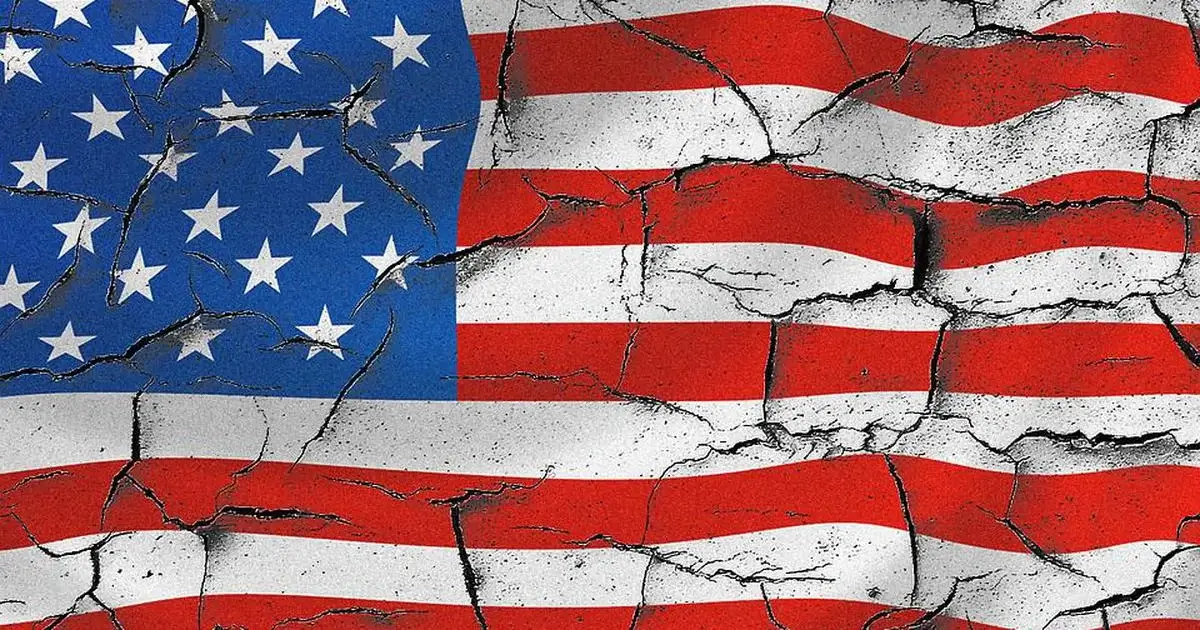US Household Debt Hits Record High Amid Slowing Consumer Spending
19.08.2024 16:00 2 min. read Alexander Stefanov
Americans are carrying unprecedented levels of household debt, and one of the nation's leading banks has issued a warning about a potential decline in consumer strength.
A recent report from the New York Federal Reserve reveals that US credit card debt has surged to a record $1.14 trillion. Overall, household debt—including student loans, mortgages, credit cards, and home equity lines—has reached historical highs.
The Fed’s report highlights a significant increase in aggregate household debt, which rose by $109 billion in Q2 2024, bringing the total to $17.80 trillion. This marks an increase of $3.7 trillion since the end of 2019, prior to the pandemic’s economic impact.
Additionally, the Fed notes a slight rise in delinquency rates for credit cards, auto loans, and mortgages, with approximately 4.9% of consumers having a third-party collection account.
Bank of America CEO John Moynihan has also commented on the situation, revealing that consumer spending has slowed dramatically. According to Moynihan, spending growth for the bank’s 60 million customers has dropped to just 3% in July and August, half the rate compared to the previous year. He suggests that while consumers are still employed and have funds in their accounts, their spending has significantly decreased.
Moynihan advises that the Federal Reserve must tread carefully to avoid excessively curbing economic growth, noting that current consumer spending levels are comparable to those from 2017 to 2019, reflecting a more stable economic environment with lower inflation.
-
1
Economic Instability and Political Shift Fueling Bitcoin’s Rise – Galaxy Digital CEO
23.05.2025 12:00 2 min. read -
2
Trump Renews Attack on Fed Chair, Calls for Immediate Rate Cuts
18.05.2025 8:00 1 min. read -
3
Japan’s Inflation Hits 3.5% as Food Prices Soar and Tariff Risks Loom
23.05.2025 21:00 1 min. read -
4
US Dollar Dominance Under Threat Amid Yuan’s Global Ambitions
22.05.2025 14:00 2 min. read -
5
Wall Street Analyst Sees Bright Side of Ballooning U.S. Debt
30.05.2025 8:00 2 min. read
Tariffs Threaten to Stall U.S. Growth in 2025, Recovery Not Expected Until 2026
The U.S. economy may be closer to a downturn than many realize, according to Jay Bryson, chief economist at Wells Fargo.
Dollar Faces Deep Decline as Fed Cuts Pressure Currency, Warns Morgan Stanley
Morgan Stanley has issued a cautionary outlook on the U.S. dollar, predicting a major decline over the coming year as Federal Reserve rate cuts take hold.
Trillions in Debt Payments Could Break U.S. Economy, Ray Dalio Predicts
Legendary investor Ray Dalio has issued a stark warning about the trajectory of U.S. government finances, suggesting the country is drifting toward a series of severe economic shocks unless its debt spiral is urgently addressed.
Wall Street Veteran Warns Tariffs Could Disrupt AI-Driven Market Rally
Steve Eisman, the famed investor known for forecasting the 2008 housing collapse, is sounding the alarm—not on overvalued tech stocks or interest rates, but on the escalating risk of global trade disputes.
-
1
Economic Instability and Political Shift Fueling Bitcoin’s Rise – Galaxy Digital CEO
23.05.2025 12:00 2 min. read -
2
Trump Renews Attack on Fed Chair, Calls for Immediate Rate Cuts
18.05.2025 8:00 1 min. read -
3
Japan’s Inflation Hits 3.5% as Food Prices Soar and Tariff Risks Loom
23.05.2025 21:00 1 min. read -
4
US Dollar Dominance Under Threat Amid Yuan’s Global Ambitions
22.05.2025 14:00 2 min. read -
5
Wall Street Analyst Sees Bright Side of Ballooning U.S. Debt
30.05.2025 8:00 2 min. read


